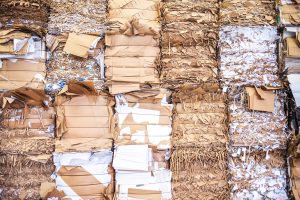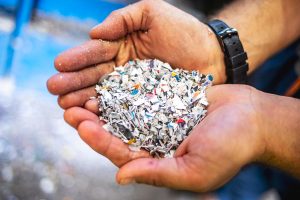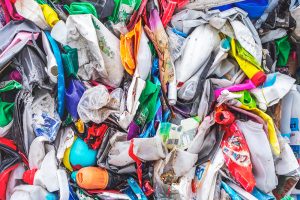Commercial Recycling – The Journey
Have you ever wondered what happens to your commercial recycling when it leaves your business?
Like most businesses, you probably generate a great deal of paper, cardboard and plastic waste. We can collect, process and treat this waste stream so that it can be turned back into useful and valuable resources.
Once Bolton Brothers collect your recycling (such as paper, cardboard and plastics) it is initially transported to our Materials Recycling Facility (MRF) at Great Blakenham. Here it is sorted and separated by type using a variety of methods.
The MRF uses various techniques from handpicking to hi-tech machinery to sort the mixed recyclable materials and is a fundamental component in the commercial waste recycling journey.
So, what exactly is an MRF? Basically, it is a processing plant for recyclable material. The MRF receives recycled materials from businesses and uses a combination of mechanical and technical equipment to separate the recyclable materials into single material streams in preparation to market, to manufacturers in the UK and abroad to be made into new items.
How does a Material Recycling Facility Work?
On arrival at Bolton Brothers all recycling is weighed at the weighbridge and then depending on the material will be unloaded in bays ready for processing.
Our skilled team inspects the recyclables, with any heavily contaminated loads being rejected or downgraded. Separated waste paper & cardboard grades are then fed onto a conveyor which feeds a fully automatic baling press. The baling press processed over 30 tonnes per hour of cardboard and make bales of over one tonne each. The graded bales are then stacked up until there are 25 tonnes in stock of one grade. The bales are then loaded onto articulated curtain-sided trailers or directly into 40’ sea containers for onward shipment to paper mills to be repulped around the world.
Any recyclable material which requires resorting is tipped in a separate area near to the 60-metre long sorting & picking line. The material is then fed by loading shovel on to the conveyor before transporting the contents up to the process plant for sorting. From there, the waste goes through a trommel to remove small fractions of 30mm or less. As the material is transported along the picking conveyor, our team stands alongside and pick one type of recyclable per station such as paper, cardboard, plastic film, plastic rigids & general waste. The metals are removed by an overband magnet, as the leftover material on the conveyor passes under the magnet the ferrous metals are lifted and separated from the waste.
All separated materials are then baled and transported for processing. For example, plastic into pellets used to make new plastic materials.
In conclusion there are three primary phases in the MRF sorting process:
- Receiving and preparing materials for the sorting process
- Sorting the materials into their individual material streams
- Inspecting, baling, storing and shipping sorted materials
What happens to…
Plastics
The final step in most plastics recycling processes is compounding which involves converting plastic regrinds into pellets, and often the incorporation of elements to transform the reclaimed plastics into high-quality, reusable materials. In pellet form, plastic is more easily distributed and remanufactured into new products such as garden furniture, even mobile phone covers, and backpacks! A high percentage of automotive parts are made from recycled polypropylene which could well have started the recycling journey from our depot.
Cardboard
Cardboard is baled and sent to board mills to be repulped & recycled into new corrugated boxes, cereal boxes and washing powder boxes.
Paper
Paper is sent to a paper mill, pulped down and turned into new paper.
So, the paper and card we collect are turned into valuable new materials. Newspapers and magazines are used to make new newspapers. Mixed paper and card are used for making packaging material and cardboard is sent to a recycling mill to be made into new cardboard products. Higher-quality papers such as office waste paper are repulped and made into new writing paper, toilet and kitchen rolls.
Your commercial recycling allows us here at Bolton Brothers to extract quality materials at the MRF enabling more recycled materials to enter new markets, in the UK and abroad and sustains the environment by avoiding landfill.




